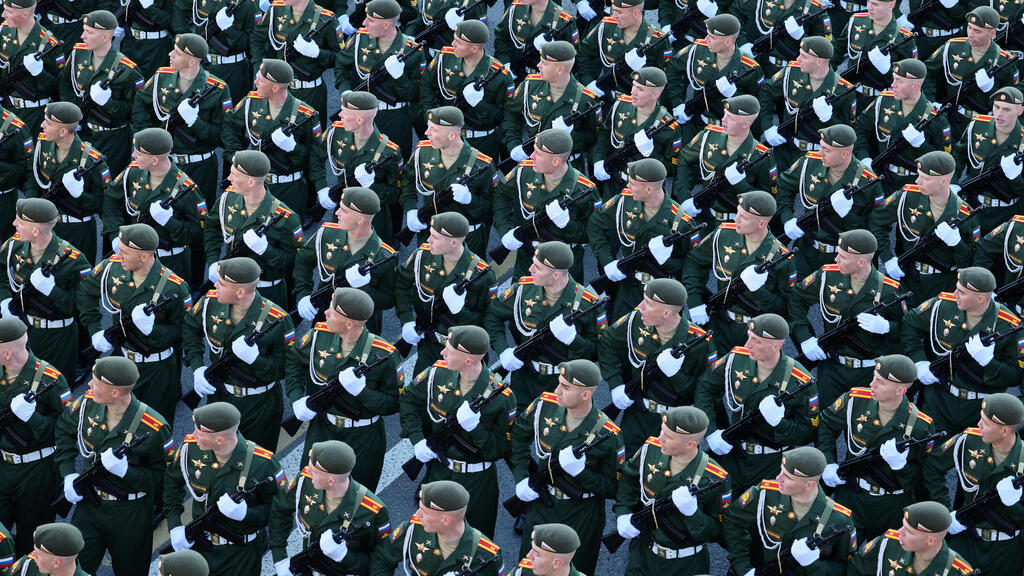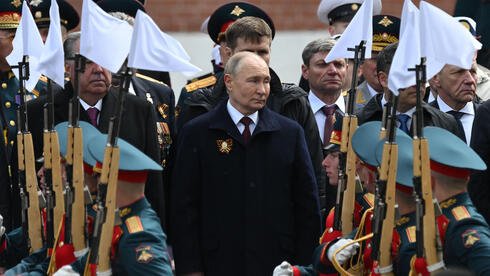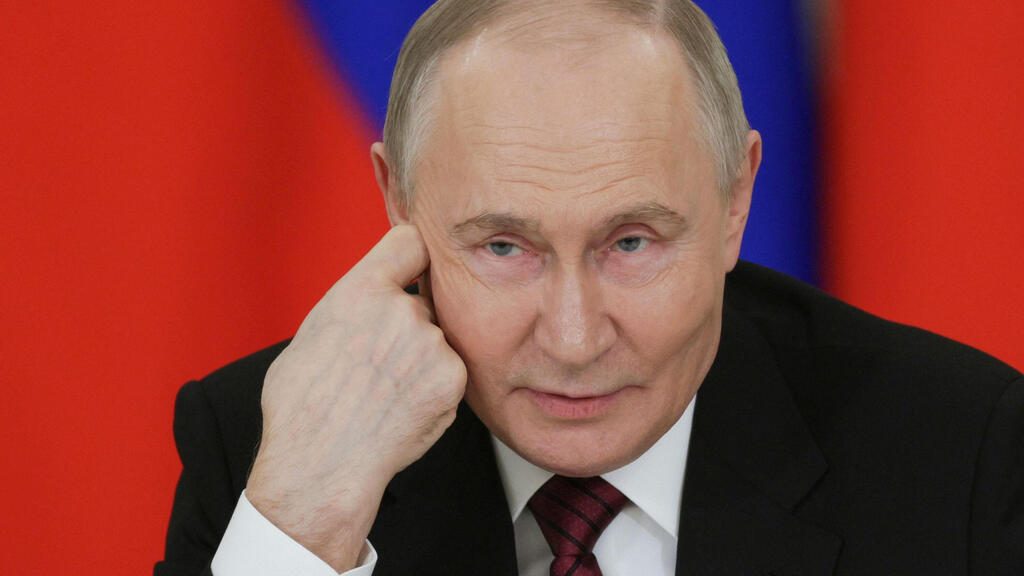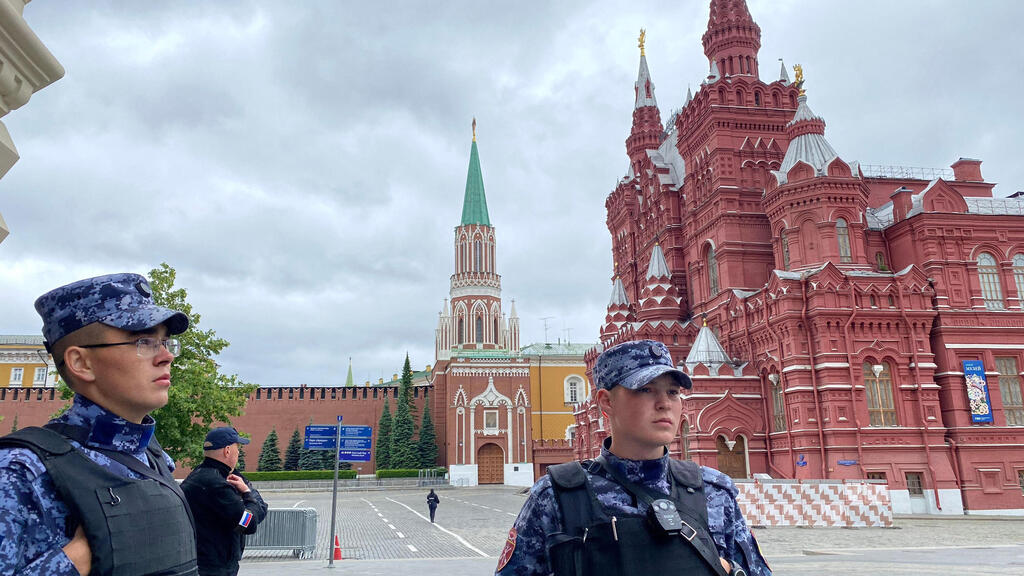Authoritarian rule, restrictions on privacy and freedom, a mythical belief in brute strength, and entanglement in long, bloody wars. We are not talking about Israel. This is Russia under the seemingly never-ending rule of Vladimir Putin and serves as a cautionary tale: This is how you become the opposite of a light unto the nations (Isaiah 42:6).
Eight good years. That’s the short golden age experienced by Russians before everything around them began to collapse and they sank into a grim post-Soviet reality with all that was bad in the USSR, without any of the good.
In 1991, when the Soviet Union collapsed, the world welcomed Russia and its people with open arms. Its citizens, who for 70 years had dreamed of democracy and freedom, were finally able to experience them. And then, just like the torment of Tantalus, who was cursed by the gods to suffer eternal longing, so that every time he bent to drink, the water receded, each time the Russians thought they could reach the fruits on the tree, the branches lifted beyond reach.
Since Vladimir Putin’s rise to power in 1999, the state has chosen a path of entrenchment and resistance that only deepens its crises. Instead of adapting to a changing world, Russia insists on projecting the image of an uncompromising superpower—an image that comes at great cost, both domestically and internationally. How did a country with immense potential become a case study in societal decline? And what is the danger in branding oneself as forceful alongside others in the international axis of evil that embraces a rhetoric of brute force? What can we learn from a regime whose policy could be summarized as: “This is who we are—deal with it”?
In the 1990s, under Boris Yeltsin, Russia seemed poised to join the free world. The West offered economic and diplomatic support, and Russian citizens tasted freedom of speech, independent media and a sense of belonging to the global community. It was a time of optimism in which Russia could have become a thriving democracy.
Yet despite its size and resources, post-Soviet Russia plunged into economic crises, suffered from corrupt seizures of state assets that gave rise to oligarchs who controlled crime syndicates. These figures quickly destabilized the young political system and fueled nostalgic sentiment for the Soviet era, when at least there was stability.
When KGB alumnus Vladimir Putin promised order and national pride, voters put their faith in him. They never imagined it would mark the start of a severe regression. Putin built his rule on brute-force obstinacy that only worsened Russia’s problems.
He seized control of media outlets and turned them into propaganda machines, restricted civil liberties, and weakened or eliminated the oligarchs. Many of them were jailed, some had fallen out of windows. In their place, he elevated loyalists. Free speech was crushed.
After the 2022 invasion of Ukraine, anyone who criticized the war—or even called it a “war” instead of a “special military operation”—risked 15 years in prison. Thousands of protesters were arrested, and websites were blocked, isolating Russia even further from the world. Instead of adapting to modernity, Putin insisted on a Soviet-style model of totalitarianism.
On the international stage, this single-mindedness manifested in aggressive policies. In 2014, Russia invaded and annexed Crimea, part of Ukraine. The move provoked harsh Western sanctions. The 2022 invasion of Ukraine further escalated the crisis: a bloody war that led to unprecedented isolation, economic sanctions (including expulsion from the SWIFT international payment system), and cultural and sports boycotts. Internally, the Russian military was exposed as outdated and unsophisticated, repeatedly resorting to drafting prisoners, the sick, and the elderly.
Instead of gaining respect, Russia became a pariah. The world now views it with anger and fear. Simply put, Putin’s determination to project strength just as his country is weakening has pushed the Russian brand into a full-blown crisis.
Despite the decline, Russia continues to attempt to improve its image while reflecting outwardly the same forceful message that it does internally, as if warning the world: “We’re still the Cold War Russian bear. Remember how you used to fear us?”
That’s why Russia invests in soft power through sports and culture—to remind the world of its (past) greatness. The 2014 Sochi Olympics were a prime example: a grand spectacle designed to present a strong, modern state. The ambition was so exaggerated that the Winter Games were held in a resort town known for its almost tropical climate.
Ambitious space programs and the promotion of Russian culture through literature and music serve the same purpose. But as aggressive policies persist, these efforts seem desperate and futile. Sanctions have crippled technological development, sports bans erased achievements, and the belligerent image overshadows any hope for admiration. Rather than learning from criticism, Russia doubles down, leading only to deeper decline.
One of the heaviest prices of brute-force obstinacy is the mass flight of Russia’s elites. Since the Ukraine war, millions of citizens, especially from the scientific, economic and cultural elites, have left the country. a voluntary exile of sorts.
3 View gallery


Russian military parade marking victory over Nazi Germany
(Photo: Shamil Zhumatov / Reuters)
Doctors, scientists, tech professionals and artists have sought freer lives in the West. This depleted Russia's human capital. As a result, the more talent that had left, the weaker the country became, and the more Putin had to tighten control to maintain power.
Low birth rates (1.5 children per woman) and shorter life expectancy only add to the demographic crisis threatening Russia’s future. This obstinacy, which ignores the risks, was driving the country deeper into the abyss while those who left spread the word that the Russian brand was collapsing.
Since February 2022, over $250 billion in capital has left Russia, with a 90% drop in direct foreign investment. More than 1,000 international companies have ceased or scaled back operations in Russia. Trade volume has declined by over 40%, and around $300 billion of the Russian Central Bank’s reserves have been frozen in the West.
And that’s not all: vehicle production dropped by about 60% in 2022, international flights fell by more than 70%, and over 100,000 information and communication technology professionals have left the country. Estimates suggest sanctions have set Russia back 10 to 15 years in terms of technological and economic development.
In practice, rather than change course, Russia continues to project military might and forges partnerships with authoritarian states like China and Iran. Internally, the annexation of Crimea and the war in Ukraine are seen as proof of greatness. Outside, they only deepen Russia's isolation.
Respect that is demanded through force or power doesn’t replace economic cooperation or diplomatic support and the price (sanctions, brain drain, a shrinking economy) grows heavier by the day. This obstinacy, which refuses to acknowledge reality, is what leads Russia into a slow but certain collapse.
Indeed, in his second term as President, Donald Trump is dangerously close to the Putin he so admires. But let’s remember: democracy in Russia lasted only eight years. In the U.S., it’s a tradition soon celebrating its 250th anniversary.
Trump’s authoritarian ambitions are already dismantling American institutions—culture, science, medicine and the judiciary. The foundational principle of “checks and balances” is under attack, but one mechanism likely to endure is the midterm elections, scheduled for November 2026. If the American public wakes up and recognizes what is being done to their country, there’s a good chance Trump will lose the majority in one or both houses of Congress, and we’ll see rapid shifts in foreign policy.
There are some takeaways that must be considered: Putin’s Russia cannot be our ally. Aligning with Russia sends a simple message to the world: we are part of the axis of evil and have no problem with that.
Israel cannot afford to adopt a foreign policy of force. Beyond the empty slogans that work well domestically, is anyone truly considering these implications? Or are we just rolling the dice and hoping for the best?
Israel cannot afford to lose its best and brightest. Those who are able to seek a better life elsewhere are those who generate the highest value for the local economy. Worse still, those very people, if they become self-imposed exiles, will tell a damning story about the collapsing brand left behind.



